Elizabeth Ekadashi is a gem – a rare and earnest film that evokes a warm nostalgia of childhood and secret escapades with friends.
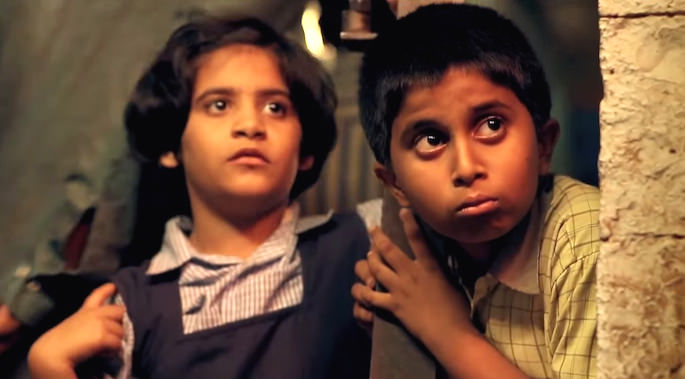
After his tour de force Harishchandrachi Factory – India’s official entry to the Oscars in 2010, director Paresh Mokashi gives us this sprightly childhood adventure with the vivid backdrop of a bustling holy town in Maharashtra. Two siblings, aged 8 and 10, with the help of their boisterous friends, secretly set up a ragtag booth to sell trinkets at the fair. They hope to earn enough money to help their mother pay off a debt and thereby prevent the sale of their beloved ‘Elizabeth’ – a bicycle, which was custom-designed and assembled by their late father. And they are desperate to save his last memory. Thus begins their secret mission which needs to come to fruition in 4 days.
Along with the thoroughly enjoyable 90 minutes, some of our favorite bits included the peppy background score, and the little boy’s infectious enthusiasm for science, wherein he proclaims things like “Einstein invented the theory of relativity. It means we are all relatives!”
We had the good fortune of interviewing Paresh at the Indian Film Festival of Los Angeles.
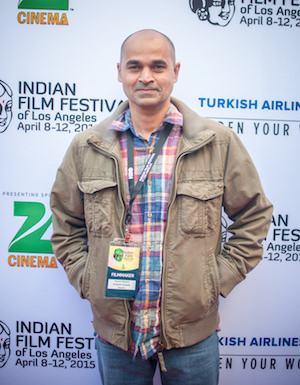
Could you give us a little background about the inspiration for your film?
It is based upon my wife’s childhood experiences. One day, as we were chatting, she told me some stories about her childhood in Pandharpur, a little town in Maharashtra, which is famous for its pilgrimages. Every year, four big pilgrimages take place in Pandharpur in the name of God ‘Vitthal’. My wife and her brother, would set up their little shops, during these pilgrimages and earn a little money to support their mother. They had lost their father early in life and they were quite poor. I was really moved by this story. And I thought this could be a great subject for a film. Because we never look at these holy towns from this perspective. We are always researchers or pilgrims who come to this place from the outside. But what happens to people who are living in that town, how is their life affected by these pilgrimages – are things we rarely give a thought to. That angle was very attractive to me. And so we decided to make this film. My wife, Madhugandha, is the co-writer.
The children in your film are so wonderful. How did you go about casting them?
It was very clear to me that the film had to be shot in Pandharpur. And I decided to do a little experiment. I told myself that we were going to work with non-actors or newcomers. Because the first thing that comes to our mind as filmmakers, is to cast big names, professionals, stage actors. I decided to go with a different principle. The adult actors you see in the film are all amateurs. They wanted to act in the film and I brought them on. And fortunately when we went to Pandharpur for the casting, because of my wife’s connection to the town, many people came to help out. There was this school where they brought out their 15 brightest kids and put them in front of us. I chatted with these kids and my casting was done in one single meeting. It was quite smooth. I thought it would be tricky and that I would need to have sessions after sessions, but that wasn’t the case at all.
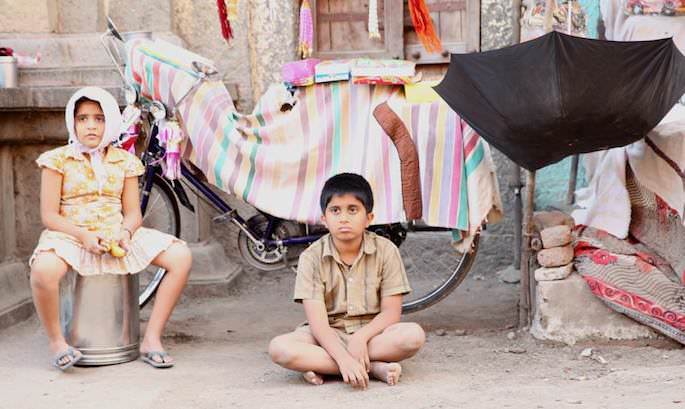
Why did you choose to not have regular auditions as they do with a formal casting call?
“What happens in auditions is that only smart people pass the test. Because it’s an extempore, it’s a last minute thing. And those who are experts in handling that, are the ones who make it to the next level. But smartness to me, is not acting.”
The thing is that I don’t believe in auditions. I only believe in talking to people and, if things connect, the rest of it falls into place. To me, whoever is closest to a particular character will get the role. Even for my first film, Harishchandrachi Factory, I never did any casting. What happens in auditions is that only smart people pass the test. Because it’s an extempore, it’s a last minute thing. And those who are experts in handling that, are the ones who make it to the next level. But smartness to me, is not acting. We are mixing up two things here. That’s why we see so many smart actors or a smart presence on screen but they cannot really carry the weight of their characters. Sometimes directors aren’t clear about what they want. They look at a performance which they think will work and they go with the flow. But we are missing some very important factors in the regular process of casting.
That is a really fascinating approach. How was it working with these kids who faced the camera for the first time? Was it easy to bring out the actor in them?
Oh gosh, they were successful in bringing out the director within me, rather. They were simply amazing.
We’re seeing a lot of Indian films of late with children as central characters. There were at least 4 or 5 such feature films at this festival alone.
It is a coincidence. Last year it wasn’t the case. This year certainly there are plenty of films whose principal characters are children. But this is not a trend, just a coincidence, I’d say.
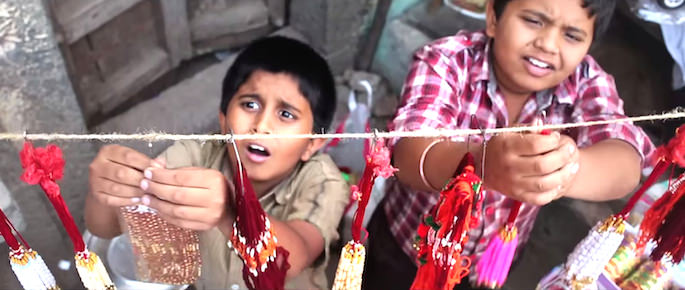
“You develop your own do’s and don’ts, likes and dislikes. You tilt towards certain kinds of film or filmmaking. That’s where you find your own style – from plenty of influences.”
What films and/or filmmakers are your greatest influences?
I won’t be able to name any one section of filmmakers. But whatever I have been watching all my life up until now, has influenced me. We don’t sit there with a pen and pencil taking notes, but indirectly we absorb a lot. From films like Amar Akbar Anthony and Sholay to ‘Bicycle Thieves’ (Vittorio De Sica) and ‘Solaris’ (Andrei Tarkovsky) – you take something from each of them. You develop your own do’s and don’ts, likes and dislikes. You tilt towards certain kinds of film or filmmaking. That’s where you find your own style – from plenty of influences.
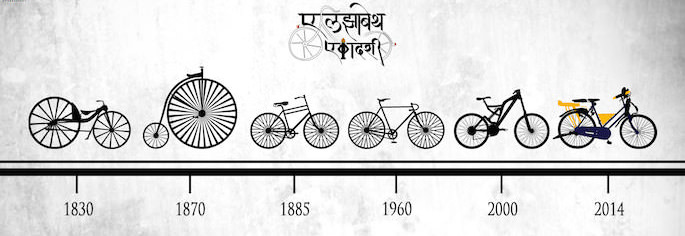
Are you dedicated to Marathi cinema? Or do you plan to make films in other languages as well?
According to me, a film is a film. Language is immaterial. For example, my third film which is in the middle of post-production (I’m taking a little break), is in Hindi. It’s a 65 minute feature film called ‘Heer Ranjha ki Bhaykatha’. It’s a satire, a black comedy on the current state of affairs. It’s set in Punjab with the India-Pakistan prisoners situation as the backdrop and therefore it is in Hindi. So the material drives the decisions about language, just like other settings.
Elizabeth Ekadashi was released in Maharashtra on Children’s Day (Nov 14), 2014 and earned Rs. 6.81 Cr ($1.1 million) in 3 weeks at the box office. It is now available on DVD.
Fun Fact: The huge masses in the film were all real pilgrims. Since it’s natural for people to gather around cameras and film equipment as bystanders, the team created a proxy setting where some of the crew members pretended that they were shooting a scene. And as the tourists started to move in their direction, the actual shoot was done stealthily from the opposite direction using handheld cameras. This allowed them to capture a lot of natural crowd movement for crucial moments in the film.















